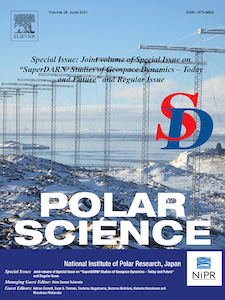Publication : « Adaptive capacity for climate change: Local initiatives and federal planning. The case of Tiksi, Sakha Republic, Russia » by C. Da Cunha and J-P. Vanderlinden
Da Cunha, C., Nikulkina, I., Vanderlinden, J-P., Shadrin, V., Doloisio, N., Salakhova, D.. Adaptive capacity for climate change: local initiatives and federal planning. The case of Tiksi, Sakha Republic, Russia. Polar Science, 100761. 2021. (hal-03425267)

Climate change exacerbates existing threats and risks and generates new ones in the lives of the Indigenous people of the Arctic regions. The ability to cope with climate variability and extreme events is largely dependent on territorial adaptive capacities and vulnerabilities in addition to the level of regional economic development. The purpose of this article is to understand if the people living in Tiksi and its hinterland are aware of the impacts of climate change and attribute importance to them, as well as to determine if they have adaptation actions and strategies have been put in place. The future of Tiksi's population is uncertain and is highly dependent on the federal government. Issues relating to climate change are not a high priority for the local populations. Although the population of the Bulunsky district has maintained some capacity for adaptation, both uncertainty about the future and their dependence on decisions made at a higher level are undermining their ability to plan for adaptation in the long term.



